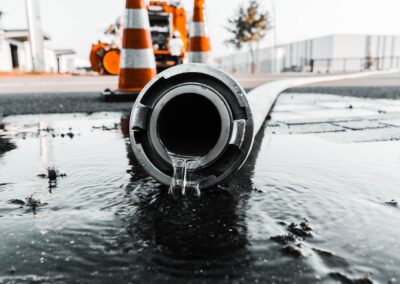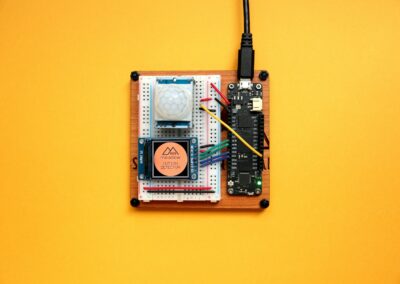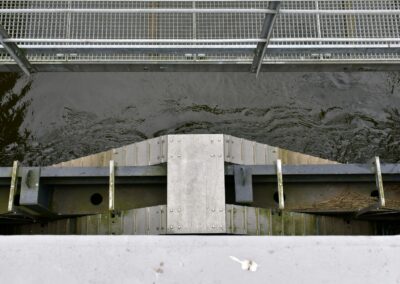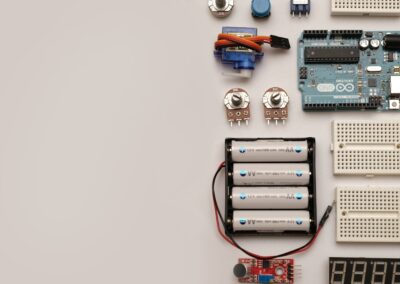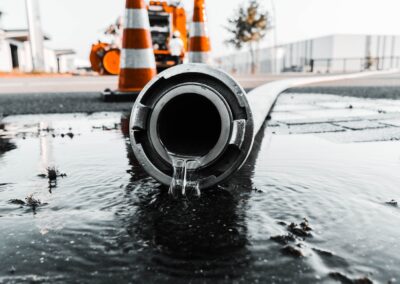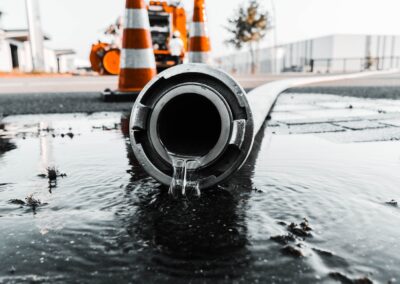Enhancing Water Distribution Networks with Smart Leak Detection Technologies
Boosting Efficiency Through Advanced Technologies
Smart leak detection technologies play a pivotal role in enhancing the efficiency of water distribution networks. These technologies leverage a combination of Internet of Things (IoT) devices, Artificial Intelligence (AI), and advanced sensor systems to monitor water flow and pressure continuously. By employing real-time data collection and analysis, smart leak detection systems can quickly identify anomalies that may indicate a leak. This proactive approach allows for immediate intervention, minimizing water loss and ensuring that distribution networks operate at peak efficiency. In regions like Saudi Arabia and the UAE, where water conservation is crucial due to arid climates, these technologies are essential for maintaining the reliability and efficiency of water infrastructure. The integration of smart technologies ensures that any leaks are detected early, reducing the amount of wasted water and lowering operational costs associated with water treatment and distribution.
Improving System Integrity and Reliability
Maintaining the integrity and reliability of water distribution networks is critical for both urban and rural areas. Smart leak detection technologies enhance system integrity by providing detailed insights into the condition of pipelines and other infrastructure components. These systems use AI algorithms to analyze data from sensors placed throughout the network, identifying potential weaknesses before they lead to significant failures. For example, predictive analytics can forecast areas at risk of leaks based on historical data and current trends, enabling preemptive maintenance. This capability is particularly valuable in cities like Dubai and Riyadh, where rapid urbanization and infrastructure expansion place additional stress on water distribution systems. By ensuring the network remains robust and reliable, smart technologies support sustainable urban development and help prevent costly disruptions.
Leveraging Data for Strategic Management
The data generated by smart leak detection technologies provides valuable insights for strategic management of water distribution networks. Advanced analytics can identify patterns and trends in water usage and system performance, informing better decision-making and resource allocation. For instance, real-time monitoring data can help utilities optimize water flow, reduce energy consumption, and improve overall network efficiency. In business environments across Saudi Arabia and the UAE, where efficient resource management is a key concern, leveraging this data can lead to more informed strategies and enhanced operational effectiveness. By utilizing data-driven insights, organizations can implement targeted improvements, adapt to changing demands, and ensure that their water distribution networks are both efficient and sustainable.
Integration of AI and IoT Technologies
The integration of AI and IoT technologies is revolutionizing smart leak detection. IoT devices collect real-time data on water flow, pressure, and other critical parameters, which AI algorithms then analyze to detect potential leaks. This combination of technologies enables a more accurate and timely identification of leaks compared to traditional methods. AI algorithms can process vast amounts of data to recognize patterns and anomalies that indicate leaks, while IoT devices ensure continuous monitoring. For businesses and municipalities in regions like Riyadh and Dubai, where infrastructure is increasingly sophisticated, this technological integration offers a comprehensive solution for maintaining water distribution networks. The synergy of AI and IoT enhances the ability to detect and address issues promptly, reducing downtime and improving overall system performance.
Advancements in Sensor Technology
Recent advancements in sensor technology have significantly improved the capabilities of smart leak detection systems. Modern sensors are more sensitive, durable, and capable of providing highly accurate readings in various environmental conditions. These sensors can be embedded in pipelines and other infrastructure components to monitor real-time changes in pressure and flow. Enhanced sensor technology allows for earlier detection of leaks, even in challenging conditions such as high-pressure environments or extreme temperatures. In the context of infrastructure projects in Saudi Arabia and the UAE, where maintaining operational reliability is critical, these advanced sensors contribute to the overall effectiveness of leak detection systems. By ensuring that even minor leaks are identified and addressed quickly, businesses can prevent major issues and maintain the integrity of their water distribution networks.
Supporting Sustainable Water Management Practices
Smart leak detection technologies support sustainable water management practices by promoting efficient use of resources and minimizing waste. Accurate and timely detection of leaks helps prevent the loss of valuable water resources, which is especially important in water-scarce regions. By reducing water wastage and optimizing distribution, these technologies contribute to environmental sustainability and help meet regulatory requirements. In regions like the UAE and Saudi Arabia, where water conservation is a priority, implementing smart leak detection systems aligns with broader sustainability goals and supports responsible water management. As businesses and municipalities increasingly focus on sustainability, the adoption of these advanced technologies becomes a crucial component of their overall strategy.
#SmartLeakDetection #WaterManagement #AIinLeakDetection #IoT #AdvancedSensors #SustainableWaterManagement #InfrastructureIntegrity



